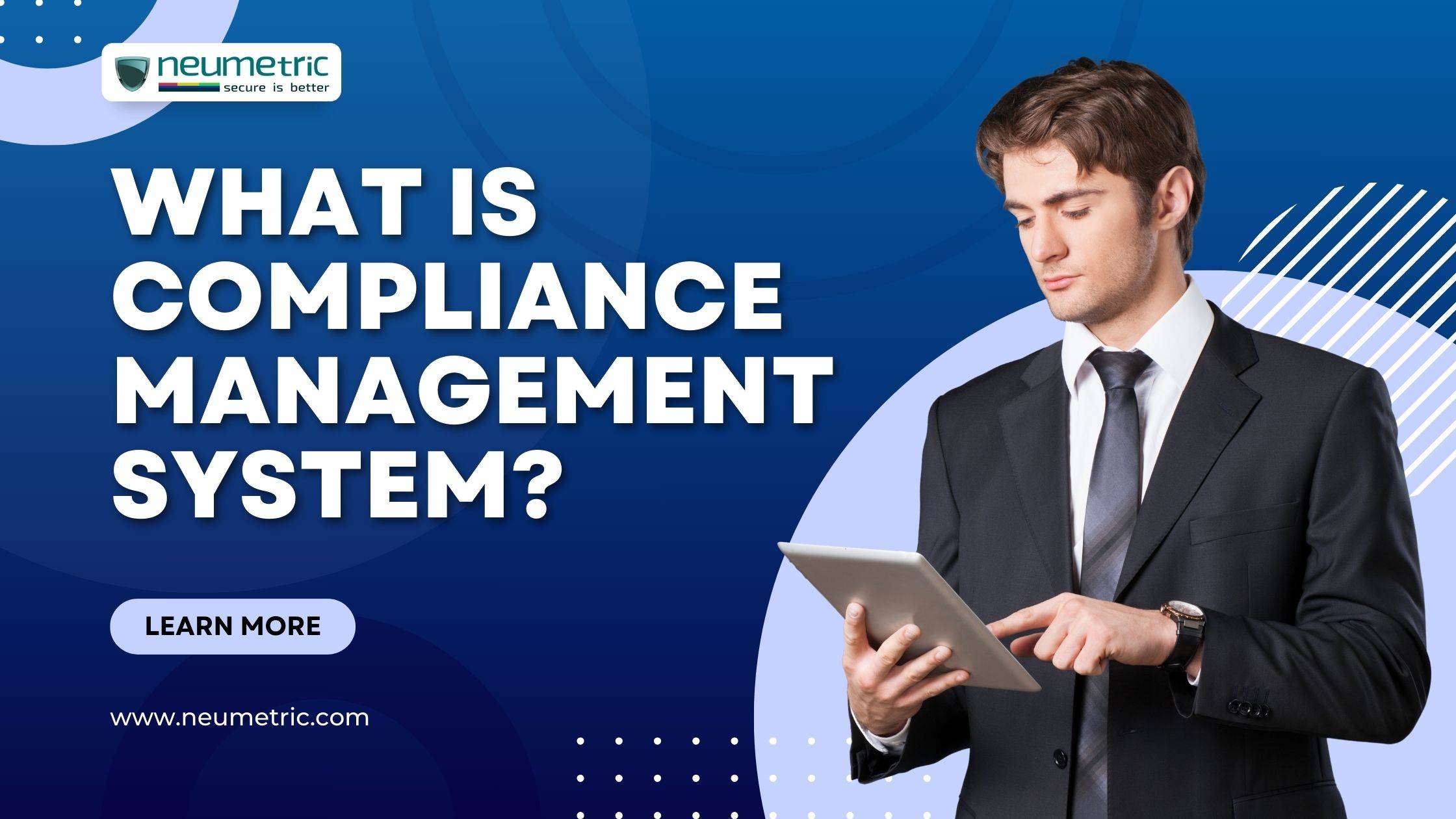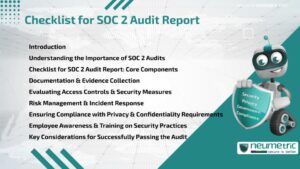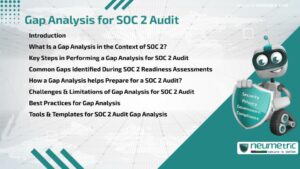Table of Contents
ToggleIntroduction
The phrase Compliance Management System [CMS] has become increasingly important in today’s dynamic & complicated business landscape for organisations aiming to operate ethically, sustainably & within the confines of legal & regulatory frameworks. A Compliance Management System is, at its heart, a structured strategy that organisations use to assure adherence to the laws, rules & internal policies that govern their activities.
A Compliance Management System encompasses a set of processes, practices & tools designed to establish, monitor & enforce compliance within an organization. This system involves the development & implementation of policies, procedures & controls that mitigate risks associated with legal & regulatory requirements.
In an era where corporate misconduct & regulatory violations can lead to severe consequences, the importance of compliance cannot be overstated. Organizations operate within a web of laws & regulations that span diverse sectors, from finance & healthcare to environmental protection. Non-compliance not only poses legal risks but can also tarnish a company’s reputation, resulting in financial losses & eroded customer trust.
The purpose of this Journal is to delve into the intricacies of Compliance Management Systems, offering a comprehensive understanding of their significance in the contemporary business environment. By exploring the components, benefits, challenges & successful implementation strategies of CMS, readers will gain insights into how these systems contribute to operational efficiency, risk mitigation & the overall success of an organization.
Key Components of a Compliance Management System
A. Policy & Procedure Development
1] Creating Comprehensive Policies: The formulation of detailed policies that explain the norms & standards regulating an organization’s operations is the foundation of any effective Compliance Management System. These regulations serve as a road map, directing staff on acceptable behaviour & practices. Comprehensive policies address not just legal & regulatory needs, but also the organization’s values & ethical beliefs.
2] Making Effective Procedures: While policies establish the broad principles, effective procedures put those guidelines into action by providing step-by-step guidance on how to execute the policies in everyday operations. Procedure development entails breaking down complex policies into manageable & achievable stages. Clarity is essential in ensuring that staff understand the particular actions that must be taken to achieve compliance standards.
B. Risk Assessment & Analysis
1] Identifying Potential Hazards: The identification of potential risks that could jeopardise compliance is a critical component of a Compliance Management System. This is a comprehensive assessment of internal & external elements that may jeopardise the organization’s compliance with rules. Risks might range from operational to financial to reputational to strategic.
2] Examining the Effects of Noncompliance: Once potential hazards have been identified, the next stage is to assess the consequences of noncompliance. This includes estimating the severity & possibility of risks materialising, as well as comprehending the ramifications of regulatory infractions. Impact analysis assists in prioritising risks, focusing resources on those with the greatest potential impact.
C. Training & Education
1] Employee Education Programmes: Training programmes that are effective are vital for ensuring that employees understand & follow compliance policies & procedures. Not only should training include the specific requirements relevant to their roles, but it should also teach the larger ethical issues that drive compliance.
D. Monitoring & Auditing
1] Regular Internal Audits: Internal audits are used to assess the efficacy of the Compliance Management System in a proactive manner. Regular, systematic internal audits aid in identifying areas of noncompliance, evaluating policy & procedure execution & verifying the effectiveness of risk mitigation methods.
2] External audits & regulatory compliance examinations: External audits performed by third-party businesses or regulatory agencies add an extra layer of inspection. These audits offer an unbiased assessment of a company’s compliance initiatives. Regulatory compliance audits entail evaluating specific business or government standards.
E. Reporting & Documentation
1] The Importance of Correct Documentation: A Compliance Management System is built on accurate & detailed documentation. It demonstrates the organization’s commitment to compliance & serves as a historical record of measures done. Policy manuals, procedure documents, training records, audit reports & any other related items are examples of documentation.
2] Creating In-Depth Compliance Reports: Producing comprehensive compliance reports entails combining data from many components of the Compliance Management System. These reports provide a high-level assessment of the organization’s compliance status, highlighting areas of strength & opportunity. Management can make educated decisions, allocate resources effectively & demonstrate transparency to stakeholders via regular reporting.
Benefits of Implementing a Compliance Management System
A. Legal & Regulatory Compliance
1] Conforming to Industry Standards: The capacity to fulfil industry standards & regulatory obligations is one of the key benefits of installing a Compliance Management System [CMS]. In today’s corporate world, industries must comply with a plethora of laws, regulations & standards that govern how they conduct their operations. A well-designed CMS ensures that an organisation is aware of these criteria & complies with them.
2] Avoiding Legal Repercussions: Failure to comply with legal & regulatory standards can result in serious penalties such as fines, legal action & reputational damage to the organisation. Organisations can identify & address compliance concerns before they worsen by proactively using a CMS.
B. Enhanced Operational Efficiency
1] Process Improvement: Organisational procedures can be streamlined by a well-integrated Compliance Management System. Employees can carry out their obligations more efficiently if compliance requirements are properly defined & communicated through rules & procedures. Standardised procedures limit the possibility of errors & variations, resulting in a more fluid operational flow.
2] Operational Risk Reduction: Organisations are constantly concerned about operational hazards arising from internal processes & procedures. A CMS provides a framework for detecting & minimising these risks. Potential operational issues can be detected & resolved in a timely way by frequent risk assessments & audits.
C. Improved Reputation & Trust
1] Increasing Customer Trust: Trust is the foundation of any successful organisation & a solid Compliance Management System is critical to establishing & keeping that trust. Customers are more inclined to trust the products or services given when they know an organisation is devoted to compliance & ethical procedures. Transparency in regulatory compliance instills trust & builds strong customer relationships
2] Increasing Stakeholder Trust: Aside from customers, stakeholders such as investors, partners & workers place a significant value on an organization’s compliance commitment. A well-implemented CMS shows stakeholders that the organisation is accountable, dependable & committed to long-term practices. This greater trust can lead to more investment, stronger collaborations & a more engaged & loyal workforce.
D. Cost Savings
1] Avoiding Penalties & Fines: Noncompliance frequently results in financial consequences, such as fines & penalties imposed by regulatory organisations. Organisations can avoid these expensive burdens by preventing noncompliance using a proactive CMS. The cost of adopting & maintaining a CMS is often significantly less than the possible expenses of legal actions & fines, making it a wise risk-mitigation investment.
Challenges in Implementing a Compliance Management System
Employee Support: Securing staff buy-in is one of the most difficult aspects of implementing a Compliance Management System [CMS]. Employees may be resistant to changes to established workflows & procedures, seeing the implementation of a CMS as adding another layer of complexity. To solve this issue, organisations must effectively promote the CMS’s benefits, emphasising how it leads to a more compliant, efficient & secure working environment.
Overcoming Management Opposition: Change resistance can also come from inside the managerial ranks. Senior leaders may oppose CMS deployment because of worries about disrupting existing procedures, projected expenses, or an unwillingness to abandon old ways. Overcoming management resistance demands unambiguous articulation of the CMS’s strategic benefits, highlighting its long-term benefits in terms of risk mitigation, increased operational efficiency & enhanced reputation.
Keeping Up to Date: Organisations attempting to maintain compliance face considerable challenges due to the constant nature of regulatory frameworks. Laws & regulations are frequently updated & changed, necessitating constant monitoring to keep informed. This difficulty is exacerbated in companies with a global presence, as organisations must manage a complicated web of international, national & local legislation.
Selecting the Best Compliance Management Software: Organisations have a hurdle during implementation when it comes to integrating technology, notably Compliance Management Software [CMS]. The choice of CMS is essential to the success of the compliance programme. The software used should meet the organization’s specific goals, industry standards & scalability. It should provide features like automated tracking, reporting & auditing.
Steps to Implementing an Effective Compliance Management System
Performing a Compliance Audit: Conducting a complete compliance audit is the first critical step in developing an effective Compliance Management System [CMS]. This entails conducting a systematic & thorough assessment of existing policies, procedures & practices in order to determine the organization’s present state of compliance. All relevant areas should be audited, including regulatory requirements, industry standards & corporate rules.
Identifying Weaknesses & Gaps: The next stage after the audit is to identify gaps & weaknesses in the current compliance structure. This entails conducting a thorough examination of audit findings in order to identify areas where the organisation falls short of compliance standards. Identifying gaps in policies, inconsistent procedures, or a lack of staff understanding is critical for creating focused solutions in the later stages of CMS implementation.
Setting Specific Goals: Organisations can design a comprehensive CMS implementation plan after they have a clear grasp of their present compliance status. This plan should include specific, measurable, attainable, relevant & time-bound goals [SMART]. Clear objectives serve as a road map for the whole implementation process, ensuring that all stakeholders are on the same page regarding the desired outcomes.
Making a Timeline that is Realistic: A realistic timeline is essential for the effective installation of a CMS. This timetable should explain critical implementation milestones, dates & stages. Setting attainable timelines keeps the implementation on track & minimises unnecessary delays. It is critical to strike a balance between the need for efficiency & the thoroughness required to build a strong CMS.
Employee Training Programs: Effective training programs are essential to instill a culture of compliance within the organization. Training should not only cover the specifics of compliance policies & procedures but also emphasize the importance of ethical conduct. These programs can take various forms, including workshops, online courses & interactive sessions.
Updating Policies & Procedures on a Regular Basis: Compliance is a continuous commitment, not a one-time effort. Organisations should set up systems for updating & revising policies & procedures on a regular basis to ensure they remain in line with changing rules & industry standards. This includes remaining current on legal developments, performing frequent internal audits & collecting employee feedback.
Future Trends in Compliance Management Systems
Artificial Intelligence’s Role: The incorporation of new technology, particularly Artificial Intelligence [AI], is crucial to the future of Compliance Management Systems [CMS]. AI has the ability to transform compliance operations by automating routine jobs, analysing massive databases for possible hazards & improving decision-making. Machine learning algorithms are capable of adapting to changing regulatory environments, allowing organisations to stay ahead of compliance needs.
Navigating Cross-Border Regulations: As businesses continue to expand globally, compliance with cross-border regulations becomes increasingly complex. Future CMS trends will likely emphasize tools & strategies that help organizations navigate diverse regulatory frameworks seamlessly. This may involve the development of sophisticated compliance management software capable of harmonizing & adapting to multiple regulatory environments.
Growing Importance of ESG: A notable trend in future compliance management systems is the increasing importance of Environmental, Social & Governance [ESG] compliance. Stakeholders, including investors, customers & regulators, are placing greater emphasis on sustainable & ethical business practices.
Integrating ESG into Compliance Strategies: To meet evolving expectations, organizations will need to integrate ESG considerations into their overall compliance strategies. This involves not only meeting regulatory requirements related to sustainability but also proactively engaging in socially responsible practices.
Conclusion
The integration of modern technology, the challenges posed by globalisation & the growing importance of ESG compliance will influence the future of Compliance Management Systems. The relevance of AI & automation in improving compliance processes, the necessity for organisations to traverse varied regulatory contexts & the growing emphasis on ESG issues in compliance frameworks are all key points.
It’s crucial to underscore that compliance management is an ongoing, dynamic process. Future trends indicate a shift from reactive compliance to proactive & predictive approaches, leveraging technology & global collaboration to anticipate & adapt to regulatory changes.
The growing compliance management landscape brings both obstacles & possibilities. Organisations that embrace technological advancements, keep up to date on global regulations & incorporate ESG considerations into their compliance strategies will not only meet current standards, but will also position themselves for long-term success in an increasingly complex & interconnected business environment. Proactive application of these forward-thinking techniques will be a critical factor of corporate resilience & growth.
FAQ’s
- What is a Compliance Management System (CMS)?
A Compliance Management System is a structured framework that organizations implement to ensure adherence to legal and regulatory requirements, fostering a culture of integrity.
- Why is compliance important in business?
Compliance is crucial in business to avoid legal consequences, build trust with stakeholders, and maintain operational efficiency
- What challenges are faced during CMS implementation?
Challenges include resistance to change, keeping up with regulatory changes, and integrating technology seamlessly with existing systems.





